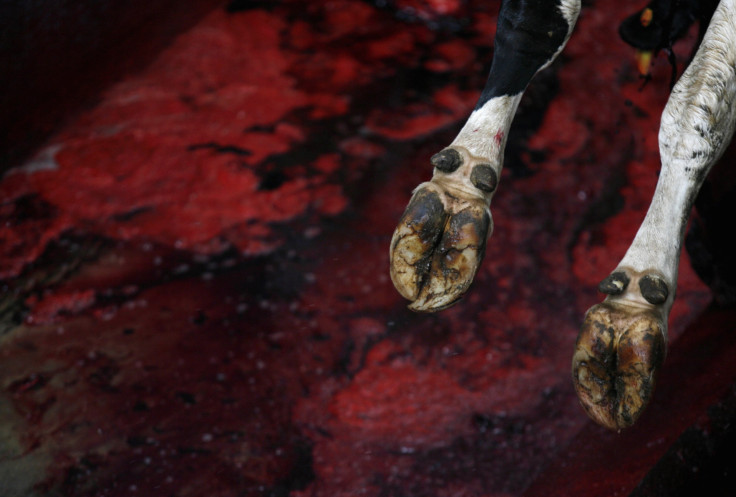California Slaughterhouse Indicted Over Known Sale Of Cancerous Beef To Avoid High Costs, Regulation

A federal grand jury has indicted the owners of a California slaughterhouse, Rancho Feeding Corp., over the plant’s sale of cancerous beef. If convicted on the relevant charges, the owners will face fines of hundreds of thousands of dollars and up to 20 years in prison.
The indictment names Rancho Feeding co-owners Jesse J. Amaral Jr. and two workers, foreperson Felix Sandoval Cabrera and yardperson Eugene D. Corda, with 11 felony counts. Amaral pleaded not guilty on Monday to the distribution of adulterated and misbranded meat, mail fraud, and conspiracy. The company’s other co-owner, Robert Singleton, is already anticipated to plead guilty to the first charge of illegal distribution.
Singleton’s expected guilty plea comes on the heels of the Aug. 14 indictment that asserted Singleton and Amaral told their staff to avoid inspection procedures set for cows with epithelioma, a form of eye cancer. As cows passed along the inspection line, according to the indictment, workers were asked to carve the "USDA Condemned stamps out of the carcasses." The felonious behavior took place between mid-2012 and Jan. 2014.
In February of this year, Rancho shut down its California location after some nine million pounds of beef were recalled over contamination concerns in over 1,000 establishments in 29 U.S. states and Canada. Food safety attorney Bill Marler told NPR-affiliate KQED that federal indictments almost never stem from safety recalls.
“There are very few criminal prosecutions generally in food cases, and there are very few and far between in meat cases,” Marler said. “They’re facing some severe jail time and some severe fines.” According to KQED, one felony charge can lead to three years in prison and a $250,000 fine. Amaral and Singleton are charged with 11 felonies.
Marler also expressed worry over the true extent of the operation. Out of the nine million pounds recalled, the indictment focused on just 180 carcasses. Specifically, the indictment shows Rancho "processed and distributed for human consumption carcasses, carcass parts, and meat from approximately 101 condemned cattle and approximately 79 cancer eye cows."
“From the perspective of the inspectors,” Marler questioned, “if somebody’s willing to change out cow heads and remove condemned stamps over a long period of time, you have to almost ask yourself. ‘What else are they doing?’”
Because the threat of contamination is as uncertain as it is widespread, many farmers have had to dispose of their recalled meat plus some extra supply, some netting losses near a half-million dollars and quantities in the tons.



























